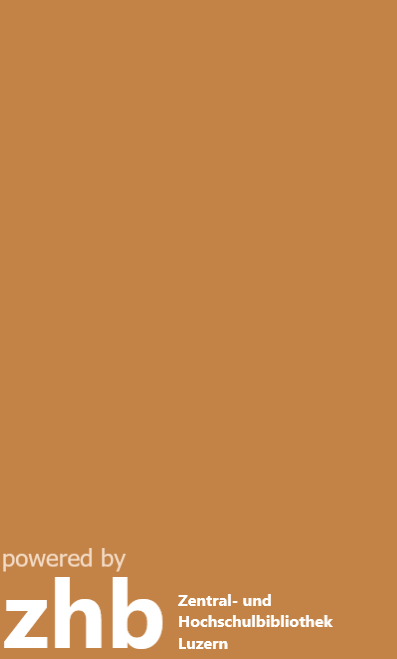The journal is intended to be a forum for discussing concepts for inter- and transdisciplinary education and for exploring ways in which these can be implemented in schools and lessons. Learn more >>
About the Journal
In all areas of life, children and young people are confronted with the questions that are not limited by historically and randomly defined boundaries of disciplines or subjects. Dealing with such questions requires disciplinary as well as inter- and transdisciplinary knowledge and corresponding ways of thinking and working. Given the premises that the development of democracies also depends on the ability of their followers to make responsible decisions, educational programs at all stages of life must be examined for their potential to determine the extent to which they make it possible and how problem-solving and explanations of phenomena can be improved. If teaching is to pursue such goals, then combination and juxtaposition of disciplinary knowledge and approaches as well as speculation on the respective boundaries, potential, and specifics of the disciplines are required.
The journal seeks to be a discussion forum for inter- and transdisciplinary education concepts and for exploring possible ways of their implementation in school and classroom. In doing so, it also explores what opportunities and challenges the existing educational establishments, such as schools and teacher training institutions (teacher training colleges, universities, further training for teachers, etc.) offer in this regard.
Therefore, the focus is on the following questions: What does it mean to prepare appropriate content if, on the one hand, it has to be developed in an inter- and transdisciplinary way and, on the other hand, corresponding intra-, inter-, and transdisciplinary controversies should be considered in order to achieve responsible problem-solving and assessable explanation of phenomena? What methods and learning scenarios support such research-based learning and teaching? What implications concerning the roles of teachers and learners arise in this regard? What requirements and questions do the academic disciplines face in their current configurations from the perspective of inter- and transdisciplinary education?
Against this background, the journal seeks to explore ways to promote inter- and transdisciplinary discussion formats that foster transparency, expose controversies and alternatives, and clarify perspectives. In this sense, the journal itself is also conceived as a research tool: What methods allow clarification of content and initiation of construction processes that allow approximation? How can preparation of knowledge for school and teaching be efficiently implemented across different schools, currents, directions, and controversies on respective questions and topics, which reflect them appropriately and do not leave them stranded, but rather promote the development of critical-reflexive competences in dealing with non-knowledge (limits of knowledge) and open questions? For this purpose, conceptual continuation beyond certain issues of the journal should be possible, for example, through publishing written statements or further explanations of terms. Furthermore, it should be possible to work on respective topics not only as completed individual works, but also as a scientific cooperation on a research question (for example, if a research is launched by one author, then is continued by other researchers, then an interim conclusion by the author who originally started the research follows, then a synopsis by an otherwise uninvolved person is made, and finally balance sheets by all the participants may follow). Certain teaching projects should provide room for comparison with other ones, and ways to proceed with their development should be explored.
To pursue multiple objectives, the journal provides the following sections:
- Research Article: Empirical and theoretical-conceptual papers are published in the section research article. All research articles undergo a double-blind peer review. Overall, fundamental discussion of the topics is required, for which purpose in addition to the currently conducted double-blind peer review of contributions in the research article section, in the medium-term perspective, as an alternative to be selected by the respective authors the form of an open-peer commentary is being offered.
- Research Forum: The research forum is conceived as a research instrument. In this section, contributions on fundamental questions and topics are selected and discussions are organized in various discourse formats to be tried and developed. The respective questions are not only to be discussed between scholars holding different views. Their arguments are to be further considered and discussed, for example, by teachers and students. Methods of individual and joint reflection should not only be presented conceptually, but also different experiences on their application should be discussed with the aim to open up perspectives for further development.
- Research-based practice: The research-based practice section aims to focus on the practice of inter- and transdisciplinary education in both school and out-of-school contexts. It deals with substantiated and reflective examples of teaching and learning. The section also covers research- and science-based discussions on teaching and classroom practice, as well as related experiences and evaluation.
- Reviews: Critically constructive reviews of works that address inter- and transdisciplinary education are encouraged. The review should include a discussion of the strong and weak points of the work, as well as what could be derived for future research. Papers in this section are subjected to a review process by the editors.
- Letters - inquired and further thought of: Letters can be addressed to all published sections. They may put questions to the content and challenge the contrasting views or arguments on counter-positions, or include further conceptual and practical considerations. The authors addressed in the letter are provided with an opportunity to give a prompt response. Both the letter and the response will be reviewed by the editors and published in combination.
itdb is an open access journal. The content of its both sections is freely available worldwide under the Creative Commons Licence CC-BY 4.0.


